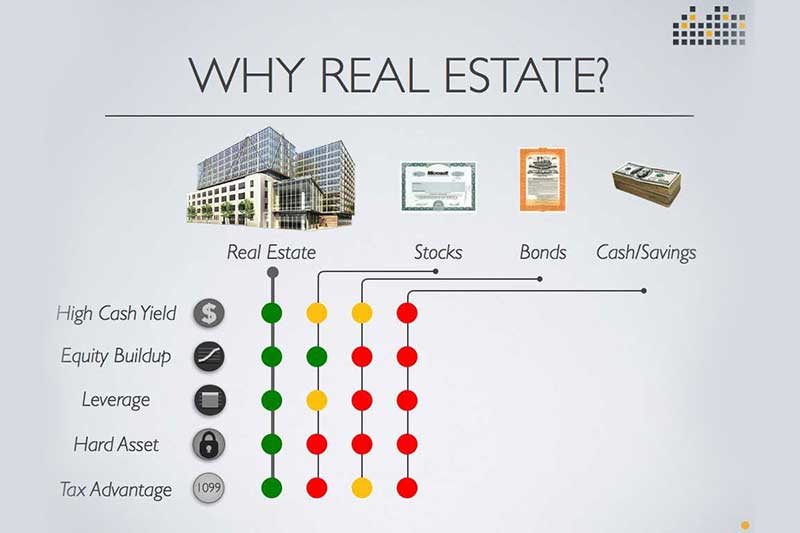
Real Estate Investing Software: A Comprehensive Guide
In today's digital age, real estate investing software has become an essential tool for investors. These platforms offer features that simplify property analysis, financial planning, and portfolio management. Here, we will explore how these software solutions can enhance your investment strategies. Learning about these tools equips you with the knowledge to optimize your investments. Read on to uncover how these digital tools can elevate your real estate investing game. Whether you're a seasoned investor or just starting, software solutions can significantly benefit you. Our goal is to provide you with the insights needed to make informed software choices.
Real estate investing software encompasses a range of applications designed to assist investors. They can help with tasks like rental income tracking, expense management, and ROI calculations. By automating complex calculations, software increases efficiency and accuracy. Researching options ensures you invest in a tool that delivers value. Case studies show that technology adoption can lead to improved investment performance. Resources like wholesalinghousesinfo.com offer insights into choosing and using real estate investing software. Expert opinions from industry leaders can help you navigate the software landscape.
Discover more about real estate investing software, visit: house rehab software
Why Invest in Real Estate Investing Software?
Efficiency gains allow you to focus on strategic decision-making rather than administrative work. Software can enhance accuracy in financial calculations and projections. Timely information can be the difference between seizing or missing a great deal. Personalized views allow you to monitor the metrics most important to you. Shared access to data ensures everyone is on the same page. A unified system enhances overall operational efficiency. Modern tools can strengthen your credibility in the industry.
Support services ensure you can resolve issues promptly. Scalability is another advantage, as software can grow with your portfolio. Cost savings are realized through reduced manual labor and errors. Security measures are crucial in today's digital landscape. Remote capabilities provide flexibility in how and where you work. Competitive analysis tools help you understand your position in the market. Digital documentation lessens the environmental impact of your operations.
Types of Real Estate Investing Software
These tools manage tenant information, leases, and maintenance requests. Deal analysis software focuses on evaluating potential investments. Market research software offers insights into market trends and demographics. Portfolio management software tracks the performance of your investments. Financial models support long-term planning and goal setting. Customer relationship management (CRM) software enhances client interactions. These tools expand your access to potential deals.
Efficient project management reduces delays and cost overruns. Staying compliant mitigates legal risks and penalties. Tax planning software helps optimize your tax strategy. Continuous learning is vital in a dynamic real estate market. Visual tools aid in presenting information to stakeholders. Networking and collaboration platforms connect you with other professionals. Virtual reality (VR) and augmented reality (AR) software enhance property viewing.
Selecting the Best Software for Your Needs
Identify your specific needs and objectives before exploring options. Choose a platform that can handle increased data and complexity. An intuitive design reduces the learning curve and increases adoption. Training resources help you utilize all features effectively. Compatibility enhances overall operational efficiency. Strong security protocols are non-negotiable in today's environment. Understanding the pricing structure prevents unexpected expenses.
Insights from peers provide real-world perspectives on software performance. Hands-on experience helps determine if it meets your needs. Ensure the software is regularly updated and maintained. Customization allows you to tailor the tool to your specific processes. Vendor credibility can impact the software's future development. Evaluate the reporting and analytics capabilities. Think about the learning curve and the time required to implement.
Maximizing the Benefits of Your Software Investment
Structured planning ensures a smooth transition to new software. Comprehensive training maximizes the tool's potential. Regular evaluation informs necessary adjustments. Personalization increases user satisfaction and adoption rates. Maintain open communication with the software provider. Backups are essential for business continuity. Continuous learning ensures you're leveraging all capabilities.
Encourage collaboration and sharing of best practices among your team. Ensure all users follow protocols to protect information. Data insights drive better investment choices. Consistent use embeds the tool into your operations. Seek continuous improvement based on performance metrics. Timely action maintains momentum. Recognizing achievements motivates continued use.
Discover more about real estate investing, visit: real estate investment analysis software
Conclusion
In conclusion, leveraging technology can significantly enhance your investment outcomes. Thoughtful choice ensures alignment with your goals and maximizes returns. Consistent and strategic use leads to sustained improvements. The long-term gains outweigh the initial costs and learning curve. We encourage you to explore the options available and take the next step in modernizing your approach. Remember, the landscape of real estate investing is continually evolving. Start your journey today by researching and testing real estate investing software that suits your needs.